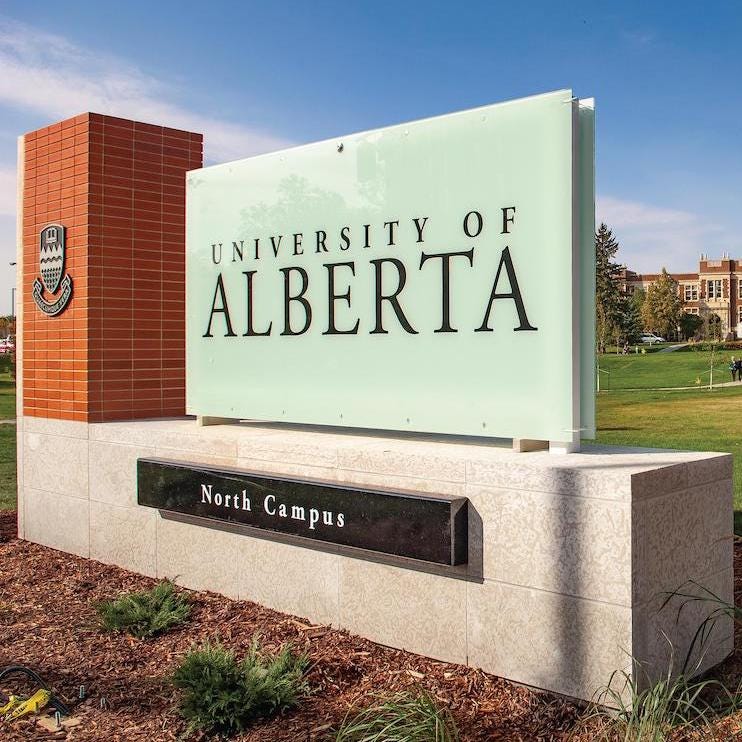U of A closes $30K endowment in Waffen-SS veteran Yaroslav Hunka's name
The 2019 fund was donated by Hunka's family to the Canadian Institute for Ukrainian Studies to study the Ukrainian Catholic Church.

The University of Alberta has closed and refunded a $30,097 endowment donated in the names of Yaroslav and Margaret Hunka in 2019 to the Canadian Institute for Ukrainian Studies (CIUS), as the fallout continues from Yaroslav Hunka’s Sept. 22 parliamentary standing ovation.
Hunka, 98, fought in the Second World War with the 14th Waffen Division Grenadier Division of the SS, also known as the First Ukrainian Division or Galicia Division.
It’s worth noting that CIUS co-founder Peter Savaryn, who served as U of A’s chancellor from 1982 to 1986, was himself a Galicia Division veteran. He received the Order of Canada in 1987.
Former speaker of the house Anthony Rota introduced Hunka, whom he said he invited as his constituent, in Parliament after Ukrainian President Volodymyr Zelenskyy addressed the House of Commons.
Rota described Hunka as a “98-year-old Ukrainian Canadian who fought for Ukrainian independence against the Russians during the Second World War,” calling him a “Ukrainian hero and a Canadian hero,” prompting cross-partisan applause.
Canada fought on the same side as Soviet Russia during the Second World War. But some Ukrainian nationalists saw Nazi Germany as a lesser evil compared to the Soviet Union under whose forced collectivization policies they suffered.
In a Sept. 27 email to The Orchard, University of Alberta Interim Provost and Vice-President (Academic) Verna Yiu said that the school “began a review” of the Hunka endowment after his appearance in Parliament, confirming that the funds were provided by his family.
According to the University of Alberta’s website, the funds were allocated towards studying the Ukrainian Catholic Church, with an emphasis on the lives and work of Metropolitan Andrei Sheptytsky and Cardinal Iosyf Slipyj, and the history of the underground church under Soviet rule.
“After careful consideration of the complexities, experiences, and circumstances of those impacted by the situation, we have made the decision to close the endowment and return the funds to the donor. The university recognizes and regrets the unintended harm caused,” Yiu said.
She emphasized the university’s “commitment to address anti-Semitism in any of its manifestations, including the ways in which the Holocaust continues to resonate in the present.”
“The university’s core values include a commitment to academic integrity and to inclusivity in its research, teaching, and community-building efforts,” Yiu added.
“As part of this commitment, the university is in the process of reviewing its general naming policies and procedures, including those for endowments, to ensure alignment with our values.”
University of Alberta political scientist Laurie Adkin expressed skepticism that the Institute for Ukrainian Studies was unaware of who Hunka was.
“The CIUS should answer to the University of Alberta community as to how it came to accept an endowment made to honour and commemorate a man who served in an SS unit in World War Two,” Adkin said in a post on X (formerly known as Twitter).
“Surely the CIUS does some kind of minimal background investigation of proposed honorees.”
According to a 2012 article from Lund University scholar Per Anders Rutling in the Journal of Slavic Military Studies, the CIUS established endowments in the names of three Waffen-SS veterans in 2011 — Roman Kolisnyk, Levko Babij and Edward Brodacky.
Formed in 1943, the Galicia Division primarily targeted Poles, as there were few Jews remaining in Nazi-occupied Western Ukraine by then.
The division, which was armed and trained by the Nazis, and pledged a loyalty oath to Adolf Hitler, drew from the ranks of the Nachtigall battalion, which committed the 1941 Lviv Pogrom.
The most notorious atrocity the Galicia Division committed was the Huta Pieniacka massacre, in which 1,000 Polish villagers were burned alive.
Monuments to the Galicia Division exist in Edmonton and Oakville, Ont., as well as Detroit and Philadelphia.
The 1986 Deschenes Commission, which sought to determine how many Nazi war criminals found refuge in Canada, determined that it couldn’t find evidence of war crimes by Galicia Division members. However, the entire commission report has never been released.
Friends of the Simon Wiesenthal Centre for Holocaust Studies and B’nai Brith are calling on the government to release the report in full.
“It’s now time for Ottawa to not only release the unredacted files related to the Deschenes Commission, but to also address the stark reality that there are still former Nazis with blood on their hands living in Canada,” said FSWC CEO and president Michael Levitt, a former Liberal MP.
In a Sept. 26 statement, B’nai Brith CEO Michael Mostyn said opening the records would help Canadians “move forward as a country” from the embarrassment of the Hunka affair.
This piece has been updated to reference the Canadian Institute for Ukrainian Studies’ others connections to Waffen-SS veterans.




